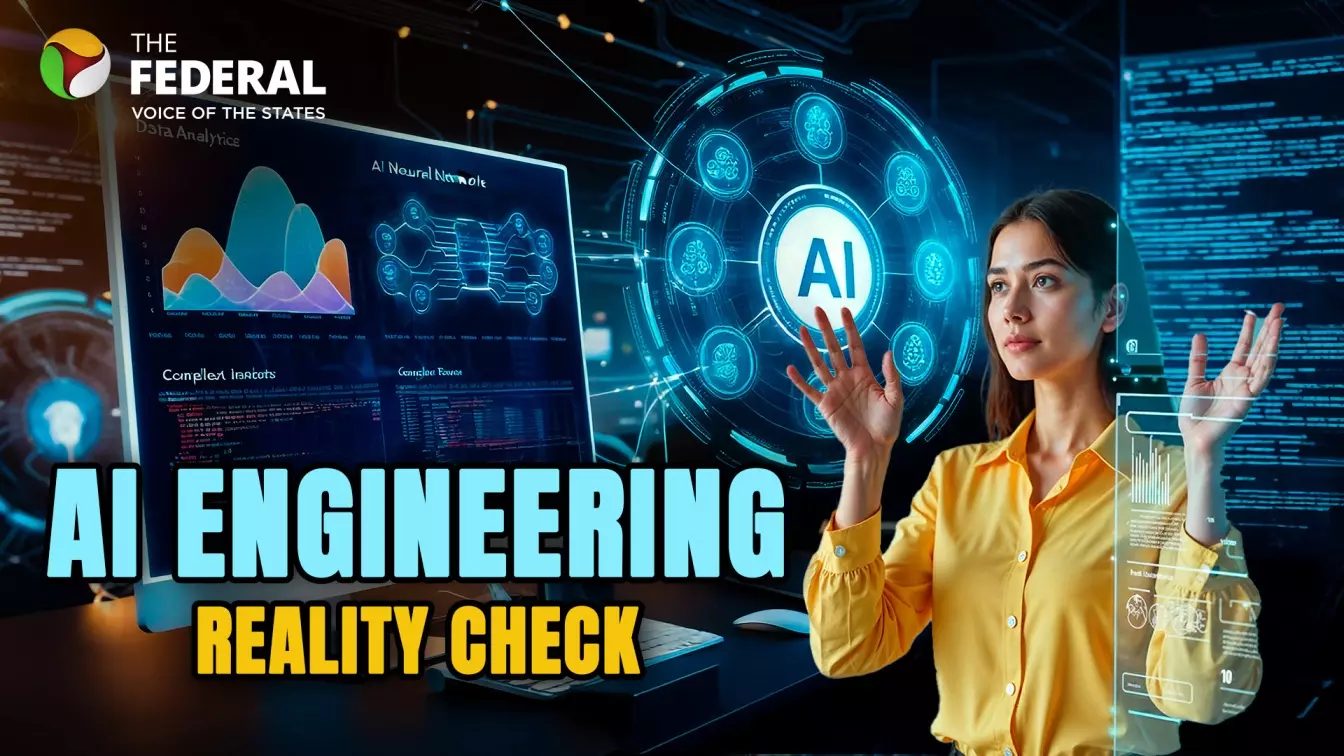
Beyond the numbers, critical gaps remain — infrastructure, experienced faculty, and industry tie-ups being the biggest.
Before enrolling for AI engineering courses, check out this video
Artificial Intelligence courses are booming, but are Indian colleges really equipped to offer BE, B.Tech, or B.Sc in AI? Is the hype worth your money?

ArtificiaI Intelligence (AI) is the buzzword in every job ad, every reel, and every classroom. With promises of high salaries and futuristic careers, artificial intelligence courses are taking over India’s higher education landscape. But are these programmes truly equipped to deliver what they promise?
A case in point is Tamil Nadu, where 60 engineering colleges have applied to add over 5,000 AI and data science seats next year. Another 19 colleges want to launch these courses from scratch. The demand has also surged in arts and science colleges. Under the University of Madras, 25 institutions aim to start B.Sc Computer Science with AI, and 12 more are seeking approval for B.Sc in Computer Science with Data Science between 2025–2026.
Also Read: Meta launches standalone AI app to compete with OpenAI's ChatGPT
But beyond the numbers, critical gaps remain — infrastructure, experienced faculty, and industry tie-ups being the biggest.
Infrastructure gaps
While undergraduate AI courses now share over 60 per cent of their syllabus with standard computer science, most colleges lack qualified faculty and well-equipped labs. GPU labs, cloud-based platforms, and real-time project environments are essential for meaningful AI training, but are often absent.
Dr Bharathi, Dean of Academics at Sathyabama University, emphasises this.
Also Read: Andhra Pradesh entering AI-powered governance era, says CM Naidu
“It is very important that students check if the university has infrastructure, hands-on labs, and industry collaboration for case-based learning,” said Bharathi.
She adds that some colleges are still stuck in traditional teaching methods, while others, especially for AI, are beginning to integrate industry projects.
Faculty challenges
AI evolves rapidly. This presents a unique challenge: faculty training risks becoming obsolete in months.
“Artificial intelligence is a field with exponential growth every day,” says Dr S Nelson Mandela of Jain University, Bengaluru.
“Even well-trained faculty need constant upskilling. Otherwise, their training becomes irrelevant within six months to a year,” he said.
Also Read: How Artificial Intelligence is shaping the future of Indian filmmaking
This fast pace makes it difficult for colleges to keep the syllabi current.
Kiruba Shankar, digital entrepreneur, makes a pointed observation, “It takes over a year for a textbook to go from idea to print. Meanwhile, AI changes every single week.”
Choosing the right course
AI isn't just another elective. It requires more than theoretical understanding — it needs a robust ecosystem.
Key criteria for students should include:
- Faculty with real-world AI experience
- Access to GPU or cloud labs
Also Read: Intel to cut over 20 pc jobs amid restructuring drive by new CEO: Report
- Continuously-updated curriculum
- Strong placement history
- Industry-mentored electives
According to Dr Bharathi, some institutions are partnering with industry to source real case studies for lab work — giving students a practical edge.
Hype vs readiness
While AI is the future, students risk investing their money, time, and aspirations into programmes that aren’t fully prepared.
“Tools like ChatGPT can help write code,” says Dr Mandela, “but knowing how and where to apply that code is what matters.”
Also Read: Infosys unveils open-source 'Responsible AI' toolkit to encourage ethical use
Universities may still be playing catch-up. A few years ago, many didn’t even have the setup to teach AI. Today, even as programmes expand rapidly, quality assurance remains a question.
Kiruba Shankar sums it up, “I would rather trust a university that does away with printed textbooks and prescribes a constantly-updated syllabus.”
Placements and prospects
Despite these concerns, students with a formal education in AI are likely to find better employment opportunities.
Dr Bharathi affirms, “From a placement perspective, the next 4–5 years show strong demand for AI, machine learning, and allied fields.”
Also Read: Use AI to make Indian youth its wielders rather than its victims
But with inflated marketing, students must think twice before clicking on "Apply Now". Quality over quantity could make or break a career in this booming domain.
(The content above has been generated using a fine-tuned AI model. To ensure accuracy, quality, and editorial integrity, we employ a Human-In-The-Loop (HITL) process. While AI assists in creating the initial draft, our experienced editorial team carefully reviews, edits, and refines the content before publication. At The Federal, we combine the efficiency of AI with the expertise of human editors to deliver reliable and insightful journalism.)

